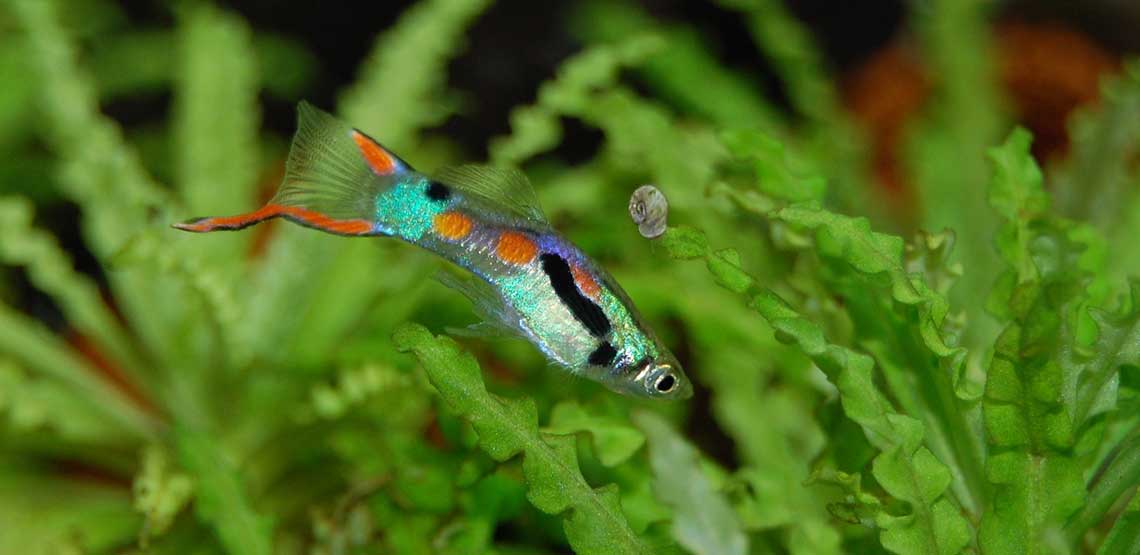A Complete Guppy Fish Resource
Guppies, sometimes called millionfish, are one of the world's most popular freshwater fish. Female guppy fish are larger than their male counterparts, something that's not unusual in the fish world but very rare in mammalian animal species. Beyond being kept as pets, guppies have been used to control malaria because they feed on mosquito larvae, thus limiting the population of malaria-carrying mosquitoes.
Appearance
Size: Mature female guppies usually reach a length of 2 to 2¾ inches, whereas the diminutive male averages just 1 to 1½ inches when fully grown.
Color: Guppy populations show a great deal of diversity from one to the next; some fish are solid in color while others have intricate patterns. Through breeding guppies, piscine experts have engineered a dazzling selection of hues, with hundreds of variations available. In the wild, females generally have gray bodies, while males have gray bases accentuated with purple, yellow, black, orange, blue or red spots, stripes or color splashes.
Behavioral Characteristics
Both regular and fancy guppies are usually kept in schools because of their small size and the fact that they are social fish with complex interactive hierarchies. While males can behave aggressively towards one another, owners generally have few problems keeping peace in the fish tank. Guppy fish are also known for choosing "friends" from within the school and socializing in pairs or small groups.
Related Search Topics (Ads):
Health and Care
Feeding: Guppies have no special feeding requirements, other than flaked fish food formulated to meet their nutritional needs, which can be supplemented, if desired, with baby brine shrimp.
Tank care: Guppy fish prefer hard water to soft water. They can also thrive in saltwater aquariums, as they have the ability to tolerate very high salinity levels. Providing your fish with a healthy living environment by using pumps and filters to keep the water clean and changing the water regularly. If you practice guppy breeding, good guppy care will also require purchasing barriers to keep adult fish separated from babies (called fries). If you don't, the adults may feed on the baby guppies.
Health Concerns: Fungal infections are among the most common guppy fish diseases, as is saprolegnia, a condition that manifests through white, slimy-looking deposits on the guppy's scales. Fish infected with fungi tend to grow listless and lose energy; medicinal treatments are available through your vet or pet store. If you suspect saprolegnia, isolate the affected fish immediately and add two drops of metaphen tincture for each gallon of water in the bowl. The same environmental toxins and contaminants that affect other types of fish – dirty water, excess fecal matter, a lack of oxygen – can also cause life-threatening problems for guppies.
Life Expectancy: The average guppy lives approximately two years.
